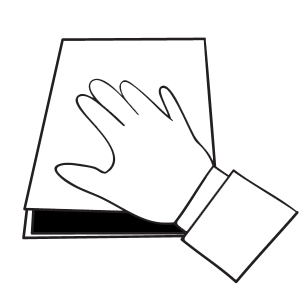I am a lawyer in an Asian country. One of the benefits to get LLM in the US would be that it allows me to pass the bar exam without spending 3 years in JD.
How is it in Europe?
For instance, if I get the LLM in Belgium in EU Law, can I practice law in EU countries? Or does it have only academic values?
EU bar?
Posted Jan 14, 2012 01:36
How is it in Europe?
For instance, if I get the LLM in Belgium in EU Law, can I practice law in EU countries? Or does it have only academic values?
Posted Jan 15, 2012 01:31
As far as I know, the LLM as such does not entitle you to practice in any EU country. You need to check the bar requirements for the respective country to find out what exactly you need.
However, once you are qualified in and a citizen of a EU Member State, according to the Establishment Directive (http://eur-lex.europa.eu/smartapi/cgi/sga_doc?smartapi!celexapi!prod!CELEXnumdoc&lg=EN&numdoc=31998L0005&model=guichett) you are entitled to practise on a permanent basis under their home title in another EU/EEA Member State, or Switzerland.
The practice of law permitted under the Directive includes not only the lawyers home state law, community law and international law, but also the law of the Member State in which they are practising the host state.
However, this entitlement requires that a lawyer wishing to practise on a permanent basis registers with the relevant Bar or Law Society in that State and is subject to the same rules regarding discipline, insurance and professional conduct as domestic lawyers.
Once registered, the European lawyer can apply to be admitted to the host state profession after 3 years without being required to pass the usual exams, provided that he or she can provide evidence of effective and regular practice of the host state law over that period.
Re-qualification as a full member of the host State legal profession
Re-qualification is governed by the new Recognition of Professional Qualifications Directive 2005/36, which replaced the 1989 Diplomas Directive (89/48). Article 10 of the 1998 Lawyers' Establishment Directive is basically an exemption from the regime foreseen by the Recognition of Professional Qualifications Directive.
The basic rules are that a lawyer seeking to re-qualify in another EU/EEA Member State or Switzerland must show that he or she has the professional qualifications required for the taking up or pursuit of the profession of lawyer in one Member State and is in good standing with his/her home bar.
The Member State where the lawyer is seeking to re-qualify may require the lawyer to either: complete an adaptation period (a period of supervised practise) not exceeding three years, or take an aptitude test to assess the ability of the applicant to practise as a lawyer of the host Member State (the test only covers the essential knowledge needed to exercise the profession in the host Member State and it must take account of the fact that the applicant is a qualified professional in the Member State of origin)
http://international.lawsociety.org.uk/eu/practise
http://www.llm-guide.com/board/70859
However, once you are qualified in and a citizen of a EU Member State, according to the Establishment Directive (http://eur-lex.europa.eu/smartapi/cgi/sga_doc?smartapi!celexapi!prod!CELEXnumdoc&lg=EN&numdoc=31998L0005&model=guichett) you are entitled to practise on a permanent basis under their home title in another EU/EEA Member State, or Switzerland.
The practice of law permitted under the Directive includes not only the lawyers home state law, community law and international law, but also the law of the Member State in which they are practising the host state.
However, this entitlement requires that a lawyer wishing to practise on a permanent basis registers with the relevant Bar or Law Society in that State and is subject to the same rules regarding discipline, insurance and professional conduct as domestic lawyers.
Once registered, the European lawyer can apply to be admitted to the host state profession after 3 years without being required to pass the usual exams, provided that he or she can provide evidence of effective and regular practice of the host state law over that period.
Re-qualification as a full member of the host State legal profession
Re-qualification is governed by the new Recognition of Professional Qualifications Directive 2005/36, which replaced the 1989 Diplomas Directive (89/48). Article 10 of the 1998 Lawyers' Establishment Directive is basically an exemption from the regime foreseen by the Recognition of Professional Qualifications Directive.
The basic rules are that a lawyer seeking to re-qualify in another EU/EEA Member State or Switzerland must show that he or she has the professional qualifications required for the taking up or pursuit of the profession of lawyer in one Member State and is in good standing with his/her home bar.
The Member State where the lawyer is seeking to re-qualify may require the lawyer to either: complete an adaptation period (a period of supervised practise) not exceeding three years, or take an aptitude test to assess the ability of the applicant to practise as a lawyer of the host Member State (the test only covers the essential knowledge needed to exercise the profession in the host Member State and it must take account of the fact that the applicant is a qualified professional in the Member State of origin)
http://international.lawsociety.org.uk/eu/practise
http://www.llm-guide.com/board/70859
Hot Discussions
-
Georgetown LLM 2024/2025 applicants
Nov 16, 2024 40,184 209 -
NUS LLM 2024-25 Cohort
Oct 25, 2024 5,863 34 -
Indian Tribes as US Jurisdictions of law attorney admission?
Nov 08, 2024 769 6 -
Warwick or Birmingham
Nov 10, 2024 1,167 5 -
NUS LLM cohort 2025/26
Nov 17 05:40 PM 481 5 -
Scholarship Negotiation Strategy (BCL v. NYU LLM Dean's Graduate Scholarship)
Nov 09, 2024 1,046 4 -
LLM in Germany 2024
Nov 09, 2024 835 4 -
Osgoode LLM - Fall 2025
Nov 21 08:35 AM 112 3
-c19f8.png)


